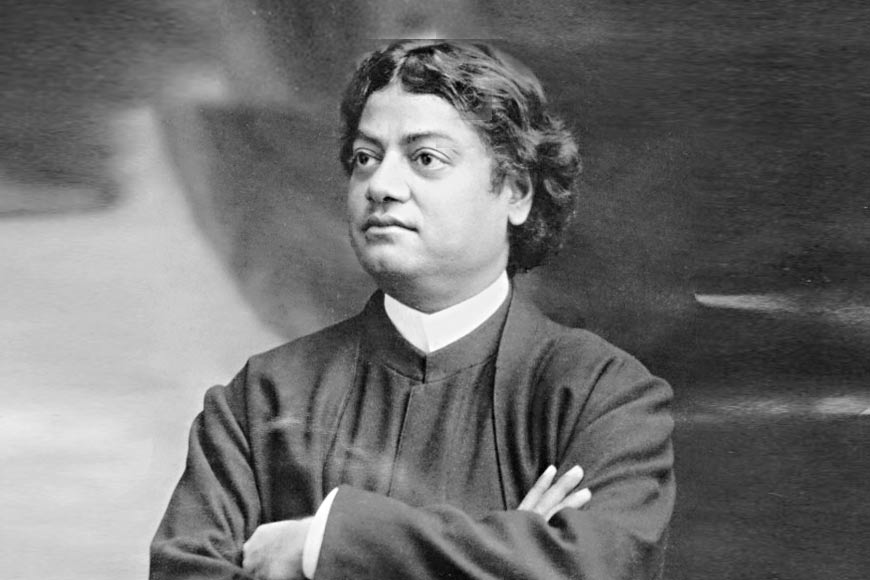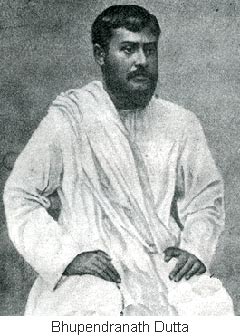Swami Vivekananda: The socialist who did not follow Marx

As part of Swami Vivekananda’s birth anniversary, GB carries a 3-part-series on Swamiji as the humanist, spiritual leader and a socialist, who could vociferously relegate to the background, Gods of his own religion, for the greater cause of his country. In an era when India is going through religious intolerance, cases of lynching in name of sacrilege, Swami Vivekananda’s true teachings somehow need to come to the forefront
In his pamphlet Vartaman Bharat, Swami Vivekananda predicted the rise of the Sudras in the future. By this term he meant the lowest rung of Indian population, the lowest caste and class in society. In this work he analyzed the historical process through the ages in the light of the rise and fall of various social categories, the Brahmins and Kshatriyas had their own periods of ascendency and domination in succession, the contemporary India he thought was passing through the third stage that is the domination of the commercial classes or the Vaishyas. He then foresaw the coming to power of the Sudras with their full cast and character. He sincerely longed for the triumph of the common masses, the Proletariat, who had been oppressed for centuries..
Vivekananda in his writings and speeches never mentioned the name of Marx or Engels. But he once quoted the Marxian phrase in his writings: “The poor are getting poorer and rich are getting richer.”
As recorded by Sister Christen, he even visualized that the victory of the Proletariat would first take place either in Russia or in China, taking cue from his love for common men and his prophecy of Proletarian victory, Swami Vivekananda is often described as a socialist. In fact, in a letter to Mary Hale, Swamiji himself wrote: “I am a socialist, not because I think it is a perfect system, but half a loaf is better than no bread. The other systems have been tried and found wanting. Let this one be tried – if for nothing else, for the novelty of the thing. A redistribution of pain and pleasure is better than always the same person having pains and pleasures.”
Like Karl Marx, he occasionally indulged in tirades against the richer classes and the privileged sections of the society and stressed on equality of opportunities for all. While staying in the West, Swamiji came into contact with some social revolutionaries. In 1900 he met the Russian anarchist leader Kropotkin in Paris and had a talk with him. He also imbibed ideas from Fichte, Carlyle and Comte. Vivekananda in his writings and speeches never mentioned the name of Marx or Engels. But he once quoted the Marxian phrase in his writings: “The poor are getting poorer and rich are getting richer.”
Swamiji himself wrote: “I am a socialist, not because I think it is a perfect system, but half a loaf is better than no bread. The other systems have been tried and found wanting. Let this one be tried – if for nothing else, for the novelty of the thing.
 His own youngest brother Bhupendranath Dutta categorically described Vivekananda as a socialist. He writes: “Swamiji called himself a socialist, and so far, it is known. He was the first Indian to designate himself as such. Yet his socialism is not of the same brand as of today. In making an analysis of his sayings a Marxist may say that his socialism does not tally with that of Lenin and may fall short of the socialist ideas of the West. His was more of the reformist school, yet during the time when Swamiji penned these epistles, socialism did not take a revolutionary attitude.
His own youngest brother Bhupendranath Dutta categorically described Vivekananda as a socialist. He writes: “Swamiji called himself a socialist, and so far, it is known. He was the first Indian to designate himself as such. Yet his socialism is not of the same brand as of today. In making an analysis of his sayings a Marxist may say that his socialism does not tally with that of Lenin and may fall short of the socialist ideas of the West. His was more of the reformist school, yet during the time when Swamiji penned these epistles, socialism did not take a revolutionary attitude.
Source: Articles by Anil Baran Ray and Arun Kumar Biswas
Book: Vivekananda as the Turning Point










